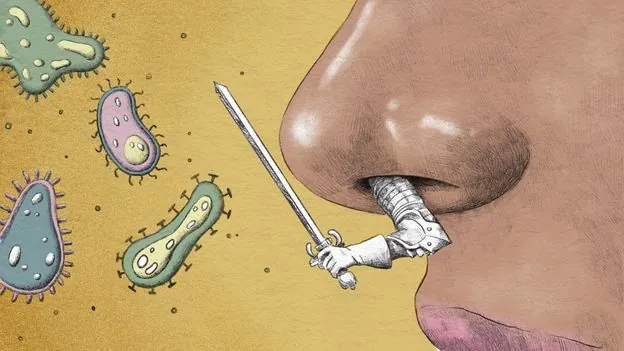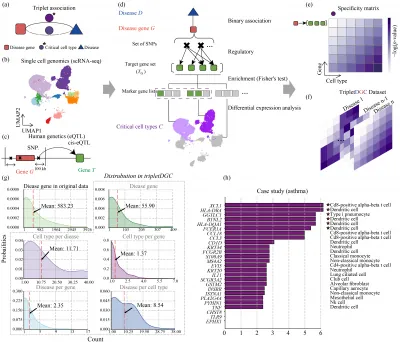
Unlocking the Secrets of Snot: What Your Mucus Reveals About Your Health
2025-07-09
Author: Mei
The Surprising Role of Snot in Health
Snot, often dismissed as a nuisance, plays a vital role in safeguarding our health. The color and consistency of your mucus can provide critical insights into what’s happening in your body.
A Historical Perspective on Mucus
In Ancient Greece, the famed physician Hippocrates believed that mucus was one of the four humors essential for maintaining health. These humors—phlegm, blood, and two types of bile—were thought to influence both health and personality. Today, we understand that instead of dictating our temperaments, snot is a key defender against illness.
Mucus: The Body’s Unsung Hero
While a runny nose is often seen as annoying, mucus is actually one of the marvels of human biology. It moisturizes our nasal passages and traps harmful elements such as bacteria, viruses, and pollutants, acting as a formidable barrier against disease.
What Your Snot Says About You
The human body produces more than 100 milliliters of snot each day, with children often producing more as their bodies learn to fend off environmental allergens. The color of your snot can be telling: clear mucus usually indicates irritation, white suggests a viral infection, and yellow-green shows a buildup of dead white blood cells. If you notice a reddish or pink hue, it might be due to irritation from frequent nose blowing.
The Microbiome of Mucus
Like the well-known gut microbiome, your nasal snot also harbors its own community of microorganisms, crucial for immune health. Disturbances in this microbiome can influence how pathogens survive and spread.
The Dangerous Side of Snot
Interestingly, while mucus protects us, a runny nose can also act as a vehicle for spreading illnesses. It enables respiratory pathogens to multiply and disseminate, inadvertently making others sick.
Towards a Healthier Snot Microbiome
Researchers are keen to understand what constitutes a healthy snot microbiome. Daniela Ferreira from the University of Oxford aims to manipulate these microbial communities, akin to how probiotics work for gut health, potentially utilizing nasal sprays to enhance immunity.
Snot in the Era of Personalized Medicine
In Sweden, an innovative study involved transplanting snot from healthy individuals into those suffering from chronic nasal problems, leading to a 40% reduction in symptoms for many participants. As this research unfolds, snot may become a pivotal tool in personalized medicine.
The Future of Diagnosing Lung Diseases
Otolaryngologist Jennifer Mulligan emphasizes that analyzing snot can yield crucial insights for various conditions, including chronic rhinosinusitis, which affects millions globally. Even lung diseases could be diagnosed early through snot analysis, heralding a new era in disease prevention and treatment.
Final Thoughts
Snot may not be glamorous, but its potential as a discreet health indicator is undeniable. As the science of mucus advances, it promises to reshape how we understand and approach our health.




 Brasil (PT)
Brasil (PT)
 Canada (EN)
Canada (EN)
 Chile (ES)
Chile (ES)
 Česko (CS)
Česko (CS)
 대한민국 (KO)
대한민국 (KO)
 España (ES)
España (ES)
 France (FR)
France (FR)
 Hong Kong (EN)
Hong Kong (EN)
 Italia (IT)
Italia (IT)
 日本 (JA)
日本 (JA)
 Magyarország (HU)
Magyarország (HU)
 Norge (NO)
Norge (NO)
 Polska (PL)
Polska (PL)
 Schweiz (DE)
Schweiz (DE)
 Singapore (EN)
Singapore (EN)
 Sverige (SV)
Sverige (SV)
 Suomi (FI)
Suomi (FI)
 Türkiye (TR)
Türkiye (TR)
 الإمارات العربية المتحدة (AR)
الإمارات العربية المتحدة (AR)